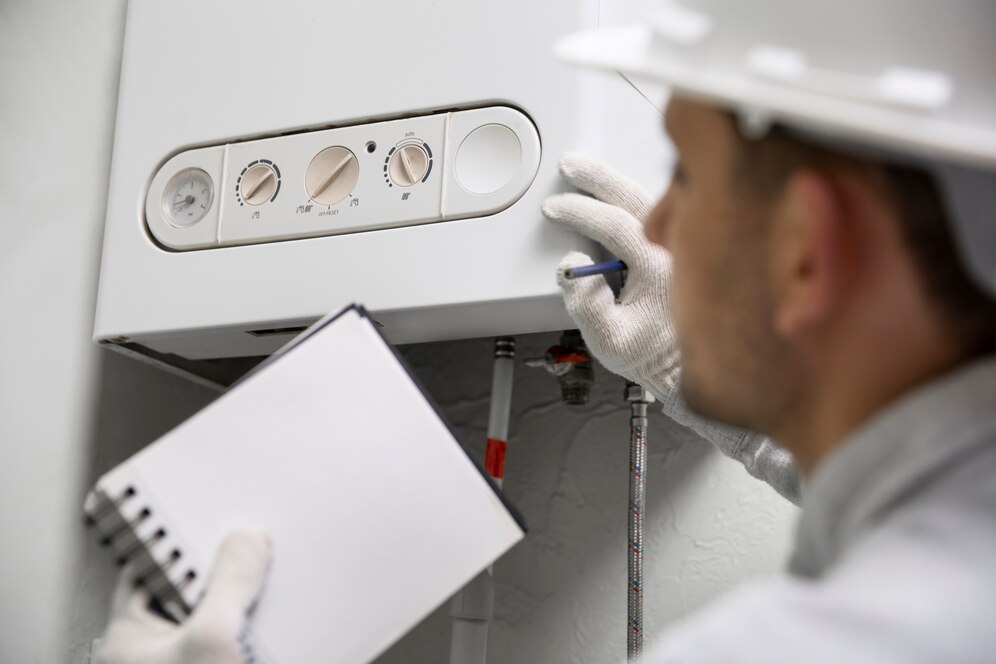Dealing with a cold shower is one of the most inconvenient surprises you can face at home. A well-functioning water heater is essential for comfort and routine. However, like all appliances, water heaters have a limited lifespan, and knowing when to replace yours can save you from unexpected issues and costly repairs.
Understanding the signs that your water heater is failing can help you take timely action. Early detection allows you to plan for a replacement before a complete breakdown occurs, preventing inconvenient disruptions to your daily schedule. Regular maintenance can only take you so far, and eventually, the unit will need replacing.
Signs That Your Water Heater Is Failing
Recognizing the signs that your water heater is on its last legs can save you from unexpected inconveniences. One obvious sign is inconsistent water temperature. If your water heater can no longer provide steady hot water, it’s a clear indication that it’s struggling to perform its basic function. This fluctuation in temperature usually means that the heating element is wearing out.
Another warning sign is strange noises coming from your water heater. Rumbling, popping, or hissing sounds often mean there is sediment buildup at the bottom of the tank. When sediment hardens, it can cause the water heater to operate inefficiently, leading to increased wear and tear on the unit.
Rusty water is another red flag. If you notice rusty or discolored water coming from your faucets when using hot water, it may indicate that the inside of the tank is corroding. While the issue might be in the pipes, it’s often a sign the water heater is deteriorating from the inside.
Leaks around the base of your water heater are a serious indication that it’s time for a replacement. Leaks generally indicate that the tank has developed fractures or cracks due to years of constant heating and cooling. Ignoring leaks can lead to significant water damage and costly repairs.
Finally, the age of your water heater is a significant factor. Most units last between 10 to 15 years. If your water heater is approaching or has surpassed this age, it’s wise to start considering a replacement. Newer models are more energy-efficient, which can also save you money on your utility bills.
The Risks of Keeping an Old Water Heater
Keeping an old water heater can pose several risks to your home and well-being. One substantial risk is the potential for water damage. As water heaters age, they become more prone to leaks and ruptures due to rust and internal damage. A leaking water heater can flood the surrounding area, causing damage to floors, walls, and personal belongings.
Another significant risk is decreased energy efficiency. Older water heaters often consume more energy to produce the same amount of hot water as their newer counterparts. This inefficiency not only leads to higher utility bills but also places unnecessary strain on your home’s power system.
Neglecting to replace an old water heater can also compromise water quality. Sediment buildup and internal corrosion can pollute your hot water supply, leading to rusty or foul-smelling water. Contaminated water can be unpleasant for bathing and unsafe for household use.
Additionally, an old water heater can become a safety hazard. Failing units can sometimes lead to pressure buildup, causing the tank to become a ticking time bomb. In extreme cases, this pressure can cause the tank to explode, posing a risk of injury and significant property damage.
Lastly, an outdated water heater may not comply with current safety standards. Ensuring your water heater meets the latest safety regulations is crucial for protecting your home and its occupants. By addressing these risks ahead of time, you can avoid emergency situations and ensure a continuous supply of hot water.
Upgrading to a new water heater provides peace of mind. When you take steps to replace an ageing unit, you’re investing in the safety and efficiency of your home. It’s a small effort that can prevent substantial inconveniences and costs in the future.
Benefits of Replacing Your Water Heater
Replacing your old water heater comes with several advantages. One of the main benefits is improved energy efficiency. Newer models are designed to consume less energy while providing the same or better performance compared to older units. This means you can enjoy lower energy bills and reduce your carbon footprint.
Enhanced performance is another key benefit. New water heaters are more efficient and quicker at heating water, providing a reliable supply of hot water whenever you need it. You won’t have to deal with inconsistent water temperatures or run out of hot water during a shower.
Safety is also a crucial reason to consider an upgrade. Modern water heaters come with advanced safety features that reduce the risk of malfunctions and potential hazards. These features can include better insulation, automated shut-off mechanisms, and more robust construction materials, all of which contribute to a safer household environment.
Replacing an aging water heater can also enhance the resale value of your home. Prospective buyers often consider the state of major appliances when making a purchasing decision. A new, efficient water heater can be a selling point, adding value and appeal to your home.
Finally, newer water heaters often come with better warranties and support from manufacturers. This can provide peace of mind knowing that if any issues arise, they will be covered. Investing in a new water heater is a practical decision that offers both immediate and long-term benefits.
Conclusion
Recognizing when to replace your old water heater can save you from unexpected inconveniences and costly repairs. Understanding the signs of a failing unit and the risks associated with keeping an old water heater helps you make informed decisions. Upgrading to a new water heater provides numerous benefits, including increased efficiency, improved performance, enhanced safety features, and a higher resale value for your home.
Employing professional installation and committing to regular maintenance can ensure that your new water heater operates efficiently and lasts longer. By being proactive, you can enjoy a continuous supply of hot water without the stress of unexpected breakdowns.
Trust our team at Standard Heating, Cooling & Plumbing for expert advice and professional services to keep your water heater running smoothly. Schedule your appointment with our plumber in Birmingham, AL today and experience the benefits of a new, efficient water heater.







